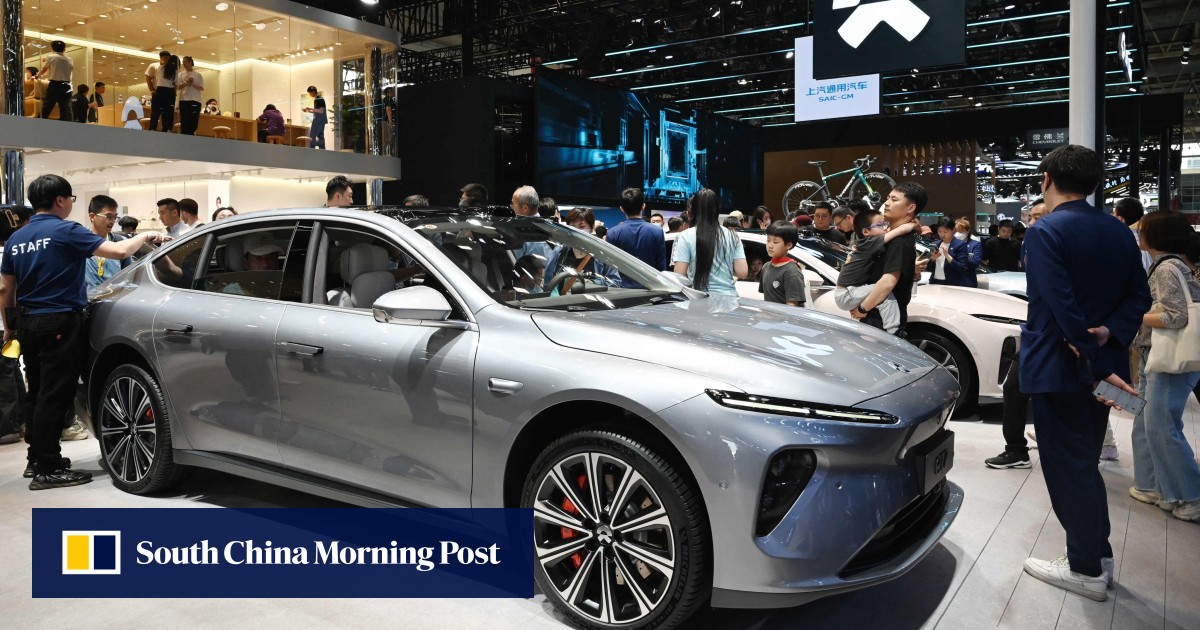“Only one-third of Chinese EV owners have charging piles for household use,” he said. “Charging facilities and technologies still need to be improved to further ease range anxiety.”
Nio will establish a factory in Wuhan, capital of central China’s Hubei province, to produce the stations. The manufacturing centre, to be located in Wuhan Optical Valley Digital Economy Industrial Park, covers 20,000 square metres and is expected to have a production capacity of more than 1,000 units a year, Li said.
Nio currently operates 2,480 battery-swapping stations across mainland cities, having launched its first in Shenzhen in May 2018. Most of its existing stations can automatically navigate a car into the proper position, with the swap taking about three minutes to complete.
The time advantage of Nio’s approach is declining, as more advanced batteries now allow competing premium EVs with ultra-fast charging technology to get 400km to 500km of driving range in 10 minutes.
“It remains unclear whether the ultra-fast charging or the battery swap will be more popular in the future when EVs dominate Chinese roads,” said Davis Zhang, a senior executive at Suzhou Hazardtex, a supplier of specialised batteries. “Battery swap obviously offers drivers a better option in overcoming range anxiety because it is more time efficient.”
Nio said that car owners in all the 1,200-odd counties in the mainland’s 14 provincial-level regions including Shanghai, Jiangsu, Zhejiang and Guangdong, will gain access to the swap stations by June 30, 2025.
The company said it has conducted 51 million battery swaps since it launched the service in 2018.

A battery that can last for 500km costs about 50,000 yuan (US$7,001) to produce, according to industry estimates.
Most of Nio’s existing models sell for more than 300,000 yuan in the mainland market.
Nio, which has yet to post a profit, faces cutthroat competition as a discount war is further squeezing the profit margins of the country’s 100-odd EV makers.

